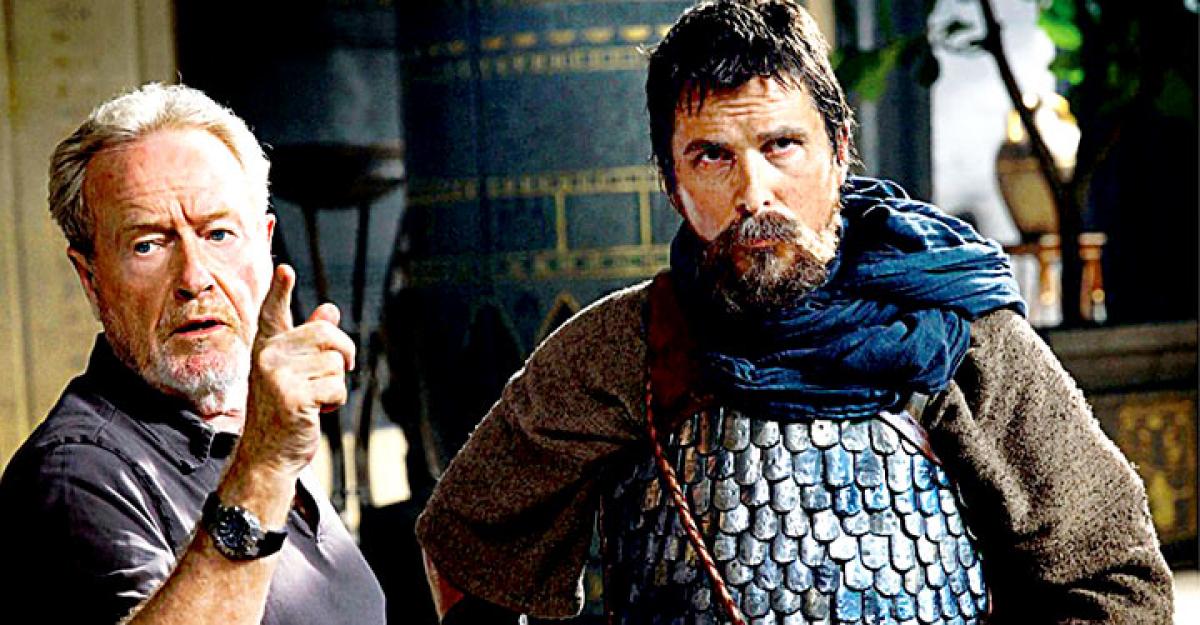Live
- 3rd Test: Head, Smith centuries flatten India on Day 2
- AAP Announces Final Candidate List For 2025 Delhi Assembly Elections, Kejriwal To Contest From New Delhi
- Bangladesh unrest has delayed execution of some vital projects: Tripura CM
- PIL in SC seeks direction to designate BMC as sole planning, sanctioning authority for Mumbai
- 3rd Test: Centuries from Head, Smith help dominant Australia feast on listless India
- AAP final list of 38 names in Delhi: Kejriwal, CM Atishi retain seats
- Tributes Paid to Sardar Vallabhbhai Patel on His Death Anniversary at CM Revanth Reddy's Residence
- In just one year, Bhajanlal govt wins hearts of people
- CM Chandrababu announces establishment of Potti Sriramulu Telugu University
- Sutume, Kissa win World 25K Kolkata; India's Gulveer makes course record
Just In

When a movie works, it’s a thing of beautya masterful experience that ties together stunning images, engaging performances and perfect music. It creates a series of moments that feel effortless.
‘Exodus: Gods and Kings’ to be premiered on Star Movies on Thursday
When a movie works, it’s a thing of beautya masterful experience that ties together stunning images, engaging performances and perfect music. It creates a series of moments that feel effortless. Acclaimed director Ridley Scott (Gladiator, Prometheus) received success of this sort for ‘Exodus: Gods and Kings’. Ahead of its premiere on Star Movies on Thursday at 1 pm and 9 pm, we present you an interaction with both Ridley and the star Christian Bale on the challenges they faced while portraying this biblical epic on the big screen.
 Ridley, what made you think of Christian to portray Moses?
Ridley, what made you think of Christian to portray Moses?
Ridley: Five years ago I received a script from (producer) Peter Chernin and as I was reading it started to click. By the time I got through it I was stunned by what I don’t know about Moses. But I figured I’m going to do it. It’s all intuition, there’s no science, just gut, and I function on gut.
And Christian, what’s the biggest challenge with taking on such an iconic figure?
Christian: Just that, you know, that he is so known and that he is so personally loved and so important to so many people. People have very, very strong opinions about exactly how he should be played. We talked to many people about that, they would tell me that, “Christian you have to play it that way”. And so, you have to realize that there is enormous pressure. But that is a one of a kind pressure; because it means that this is a vital story, it’s a resonate story. Then guided by Ridley, we forged our own way of portraying this character who is a far more complex character than I have ever begun to realize.
How so?
The traditional portrayals of him, the Sunday school idea, is one that is quite simple, the wonderful achievements, known as the liberator, etc. The passages that I was familiar with were that he fought, he wrestled with God, the definition of an Israelite. He didn’t want to be his representative. He was living in very violent times. He was very conflicted himself, about who he was, who his own identity was. He was an eternally intriguing character, possibly the most I’ve ever come across.
Ridley, what triggered your interest in crafting your version of the Exodus?
Ridley: Well my version, very much would be that. I looked at the original version and versions of other biblical epics and they were kind of very exotic and elevated. And I wanted to put it back into the realms of reality, making the characters more real. I’ve once seen the remains of Ramses so I know he was real, he’s not a fantasy. I know he absolutely existed. So I wanted to come from that direction.
And in both of your opinions, what is Moses’ defining characteristic?
Christian: To me, I’m too far in my portrayal. It’s like you can’t see the wood from the trees, you know? I can’t define him in one word, because to me it was his nature that he was very complex, and he was so very, very human. He is not a two-dimensional character in any way whatsoever. He is very much representing almost every human emotion you could possibly have. He has that throughout the Torah. I can’t think of one word, I would have to take much longer than a couple minutes to figure that out.
Ridley: You got a guy that is brought up to status quo, status quo being that you have a slave population that is free labor for Egypt and all its productivity, its success. Then it becomes status quo. Then at what moment if you are half intelligent, if you have any human feelings whatsoever that you gradually adjust to that idea. It’s his conscious built up, particularly when it was identified that in fact he was Hebrew, then he went away. Then he had a period of when he sat thinking about that. I’ve always thought that idea of the boy Malak, could easily be perceived as his conscious, that ignited him to get up and go back to return to Egypt.

© 2024 Hyderabad Media House Limited/The Hans India. All rights reserved. Powered by hocalwire.com







